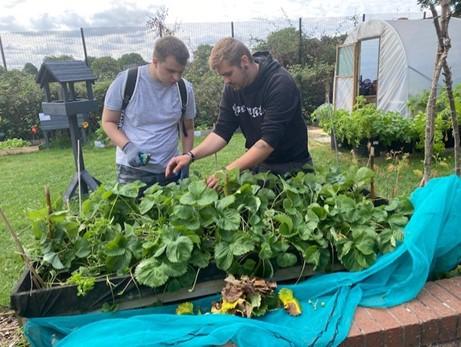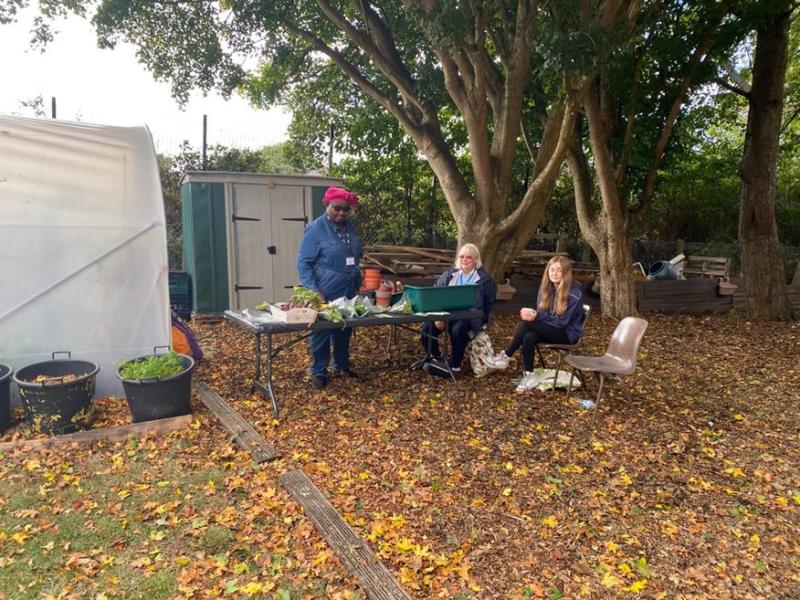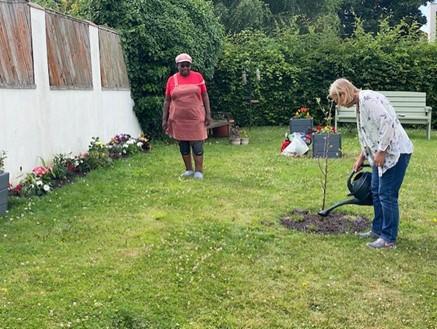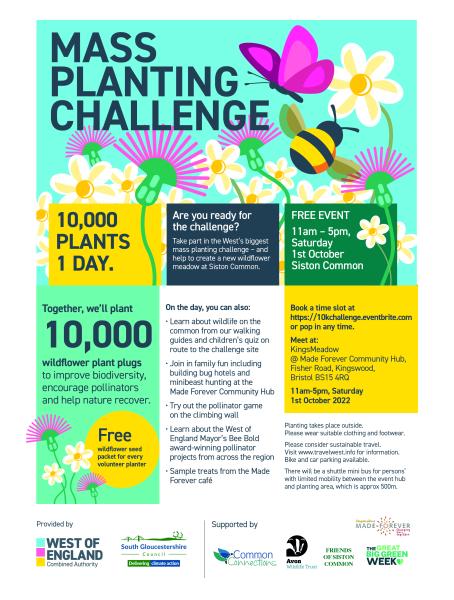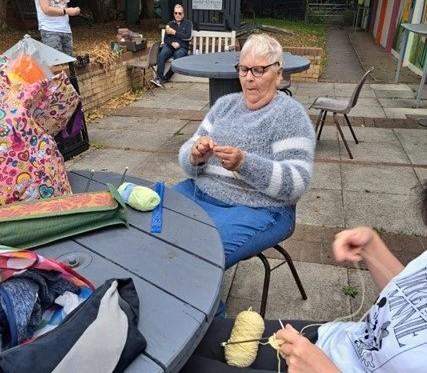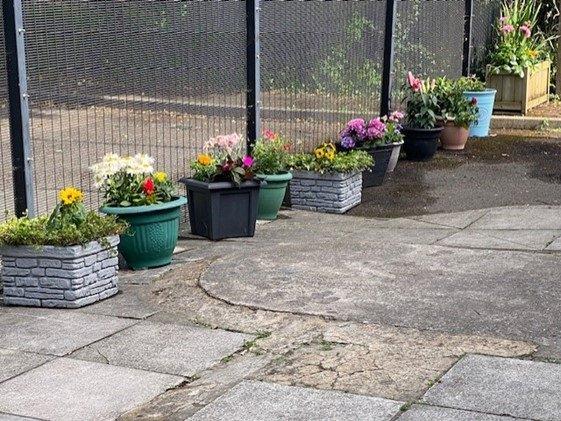Joanna Watson11 Jan 2023
“There are challenges and grief when you can’t help everyone or make things better, but when you see the difference this project makes enabling people to expand their social network, it makes it worthwhile”.
Catherine Sama is the Chief Officer at Kingsmeadow@MadeForever in Kingswood, South Gloucestershire, a wellbeing community hub where staff work with volunteers to support local people in crisis facing isolation, mental stress and multiple challenges.
As part of the personalized support services they offer, they reach out to individuals and groups to help them connect with nature at the community hub, in their local area and in their own homes. People are supported and mentored in nature-based activities, including planting seeds and plants, habitat and pond restoration and improving the local environment. Friends of the Earth’s Local Nature Innovation Fund contributed to the purchasing of plants, seeds, plant nursery materials, gardening tools and equipment, to support the delivery of the project across the community.
This is a learning opportunity for staff, volunteers and participants alike. Catherine hopes to learn how to encourage community ownership and responsibility for the natural health of the local green spaces and to increase understanding of the value of green spaces in the area, fostering the desire to preserve them.
How do you break down that sense of isolation?
Catherine says it’s not that complicated. People need to feel valued and cared for. There is something about nature specifically – it’s powerful without really needing to do much. Just being in nature helps people’s wellbeing. She’s noticed that this is a real benefit to people with autism and doesn’t think there are many services that offer this kind of support.
But they have to start where people are at and some can be reluctant. When they do home visits, they’re often told “gardening is not for me”. So Catherine says OK – just come for a cup of coffee in the garden. “A few more calls and they are there in the garden every day. It’s amazing to see the shift in people’s wellbeing”.
Nature projects can open a door to people who are struggling with loneliness and isolation. They may not initially want to engage in activity but once they have accessed the garden space they first use it to relax, then to socialize, then to get involved with gardening. This illustrates the importance of being visible – just being busy doing things in the garden can attract a visitor's interest and in some cases lead to engagement. One person who was initially reluctant to get involved now sets their alarm to make sure they don’t miss a session in the garden.
The nature project is needed more than ever
Prompted by the cost-of-living crisis, people come to the hub because it means they don’t have to use power and heating at home. They make planters out of recycling material and participate in activities. Sometimes the hub is closing, and they can’t get people to leave the garden – people are simply just looking at plants and having a chat. “You see firsthand the difference. They say...what would I be doing at home? Drinking? Thinking?” The garden is an alternative place to socialize and the men, particularly, stay for a cup of coffee. “This is the joy in these difficult times” Catherine says.
Don’t over-organise. Keep it informal and relaxed.
Another thing that chimes with what we heard from others is that minimal structure and informality is the key. “When it’s fun and relaxed it works. You can go off and do board games, get tea, do a bit of gardening. There’s no pressure”. Make nature as accessible and as easy to engage with as possible. Expecting commitment can be a barrier but when people come to it voluntarily, it can become familiar. “Some people need to reach in before they can reach out. Let people try it and it will become a habit” notes Catherine.
The garden is also helping Catherine herself. She goes out and joins the gardening group to wind down after a long day.
Nature as a focus for building relationships and social connection
They realized that lots of people were unaware of this green space in the heart of the community and that it’s worth talking about it and encouraging them to engage with it.
They’ve held two events which have involved a mass planting of 7000+ plants and a community clean up and litter pick. They’ve taken people for walks on the common and talked to them about nature in the green space. They’ve given out plants for people to take home; organized a bee hunt; involved kids through nature-based face painting; talked to them about what’s happening to the planet and why pollinators are so important. They laid on a café, music and bike-fixing to underline sustainability messaging and were able to attract important Council officials to participate on the day.
The project has been going really well with 114 individuals engaged so far. They have found that once set up the project can have a ripple effect. They set up the garden at Kingsmeadow for nature/gardening activities and it is now used as a hub for other community get-togethers, including knitting and crochet groups, non-pub socializing and over-60s mobility groups and is catalysing wider greening activities in the community.
Why does this work for the locals?
Catherine says it’s listening and understanding different people’s ways of thinking and responding. People struggling with mental health don’t want to add to the pressure so it’s about enabling them to try things out in their own way and in their own time. Kingsmeadow has created the opportunity for people to experience nature and share what they know. “Treat people with dignity and respect and ask them to help you, rather than vice versa”. Make them feel valued and their confidence will grow with the garden.
If you'd like to know more about what we learned from running the Local Nature Innovation Fund, please get in touch. And if you'd like to find out more about the individual projects, please contact us and we'll pass on your details.


